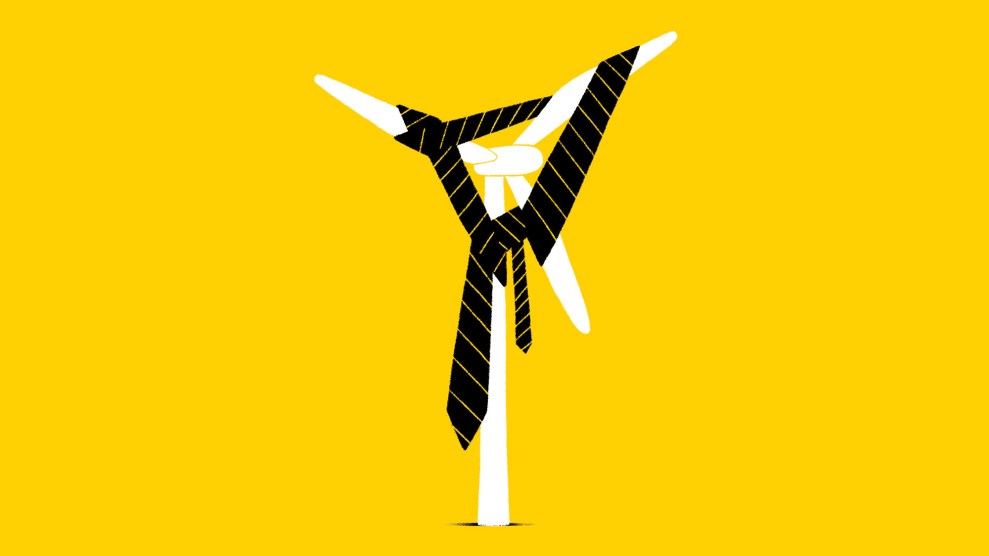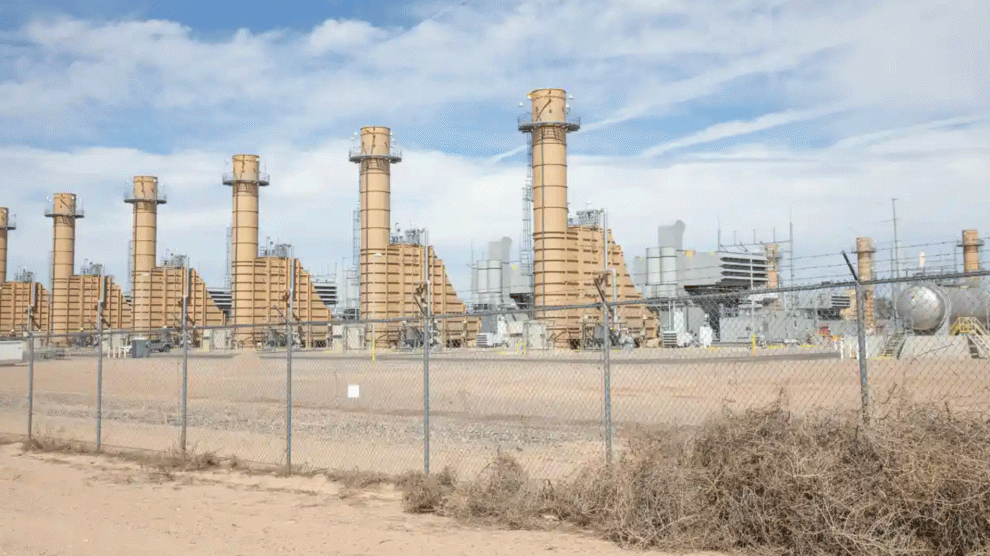
An excavator removes contaminated soil from around Duke Energy's decommissioned coal-fired Dan River Steam Station in Eden, NC, near Carrboro, in 2016. Two years earlier, Duke had been responsible for one of the worst coal ash spills in US history. Gerry Broome/AP
This story was originally published by the Guardian and is reproduced here as part of the Climate Desk collaboration.
A small North Carolina town has launched the nation’s first-ever climate accountability lawsuit against an electric utility.
The litigation, filed by officials from Carrboro, North Carolina, on Wednesday morning, accuses Duke Energy of waging a “deception campaign” to obscure the climate dangers of fossil fuels. Those efforts resulted in delayed action to curb planet-heating pollution, which has pushed up the costs of climate action today, the lawsuit says.
“When you’re dealing with something like the existential threat of climate change, that requires us to make bold moves,” said Carrboro’s mayor, Barbara Foushee, who helped bring the suit.
The litigation follows a November report from the non-profit research group Energy and Policy Institute, which found some of the utility companies that comprise today’s Duke Energy Corporation—including Duke Power, Carolina Power & Light, and Public Service Indiana—were cautioned about the climate crisis decades ago.
“Although Duke has understood the dangers of climate change for decades, the company actively participated in a far-reaching, decades-long campaign to deceive the public and decision-makers about these dangers,” the suit says.
In 1969, the lawsuit says, officials from utilities now owned by Duke attended a meeting of the Edison Electric Institute, a trade group, where they were informed that scientists believed increasing carbon emissions would be a “long-term problem of major consequence.”
The same trade group in 1984 commissioned a study that included two hypothetical news stories from the future—one in which fossil fuel emissions continued unabated and caused devastating impacts, and another in which emissions were reined in and a safer future was secured, the lawsuit says.
“When it comes to this kind of injustice, it doesn’t matter who calls it out as long as somebody does.”
Despite these warnings, Duke continued to build out fossil fuel infrastructure, oppose legal limits to planet-heating pollution and back efforts to promote doubt about climate science, according to the suit.
In 1991, the lawsuit says, the Edison Electric Institute placed newspaper advertisements with the message: “How much are you willing to pay to solve a problem that may not exist?” Duke maintained its membership in the institute.
“They tried to sow confusion about climate change and the fact that there’s a threat that we face in the future,” said Howard Crystal, legal director of the Energy Justice Program at the non-profit Center for Biological Diversity, who is advising the plaintiffs on the case.
The deception continues to be a problem today, now in the form of “greenwashing,” said Crystal.
On social media, Duke has portrayed itself as a leader in bringing on “cleaner energy solutions” despite having one of the largest planned gas buildouts of any company in the US.
“They’re still expanding fossil fuels and suppressing renewables—in flat defiance of scientists demanding that we do the exact opposite,” said Jim Warren, executive director of local non-profit NC Warn, in a statement.
According to one study, Duke Energy in 2021 had the third-largest emissions footprint of any business in the United States.
Duke Energy’s deception about its emissions has led to delayed climate action that has in turn placed a burden on Carrboro, the lawsuit says. It alleges the company broke five state laws, including those protecting citizens from public and private nuisances.
“Carrboro is a true victim here, and they’ve incurred a lot of damages,” said Matthew Quinn, an attorney at the North Carolina firm Lewis and Roberts who is representing the plaintiffs.
The town, which sits about 20 miles southwest of Durham, is seeking damages for the climate-fueled costs of adapting roads and infrastructure to increased flooding, and for increased energy costs. “Those costs could add up to millions, many millions,” said Crystal.
The exact amount the case could yield in damages is unclear. “We’re content to let a jury of our peers determine what we get,” said Foushee.
It may not be easy for a municipality with a population of 22,000 to go up against a major corporation, Foushee added, but the town is no stranger to taking up climate issues. It has long worked to slash its emissions and support environmental justice, she said.
“It may seem like a David-and-Goliath situation and in reality it is one,” she said. “But when it comes to this kind of injustice, it doesn’t matter who calls it out as long as somebody does.”
The new filing comes as part of a wave of lawsuits from dozens of states and municipalities accusing fossil fuel interests of sowing doubt about the environmental risks associated with their products. On November 26, Maine’s attorney general filed a case against Exxon, Shell, Chevron, BP, Sunoco and the industry group the American Petroleum Institute. The following day, Ford county, Kansas, sued major fossil fuel interests, alleging they had waged “a decades-long campaign of fraud and deception about the recyclability of plastics.”
In October, Oregon’s Multnomah county, which includes Portland, became the first municipality to sue a utility over climate deception when it added the regional gas provider NW Natural to its 2023 lawsuit against fossil fuel corporations for fueling a fatal 2021 heat dome.
Randee Haven-O’Donnell, a councilmember in Carrboro, said more utilities could soon be named in similar lawsuits. “We’re the little engine that could, and we hope other towns can be, too, and hold their polluting utilities accountable,” she said in a statement.
















